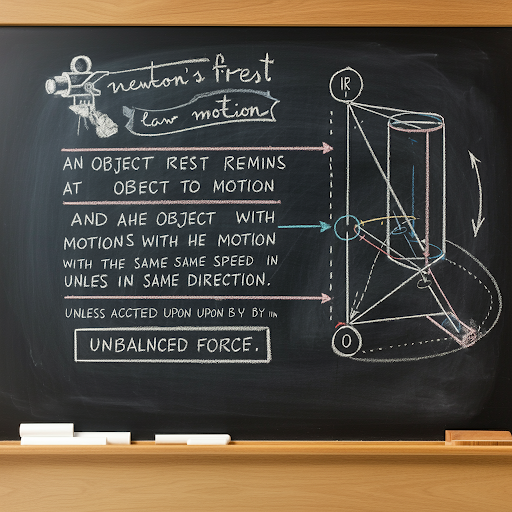
Procrastination and Productivity: Applying Newton's Laws
In 1687, Sir Isaac Newton revolutionized the field of physics with his seminal work, *The Principia: Mathematical Principles of Natural Philosophy*, where he outlined his three laws of motion. These laws not only transformed the understanding of physical science but can also serve as enlightening analogies for tackling procrastination and enhancing productivity.
Let’s explore these principles through the lens of productivity.
Newton’s First Law of Productivity
First Law of Motion: An object remains at rest or continues to move at a constant velocity unless acted upon by an external force. Essentially, things that are already moving tend to keep moving, while things at rest stay at rest.
In the realm of productivity, procrastination can be seen as a universal truth. Much like Newton’s first law, if you're disengaged, you’re likely to remain idle. The silver lining? Once you get moving, it becomes much easier to maintain that momentum.
So, how can you kickstart your productivity? One effective method is the **2-Minute Rule**. This principle suggests that to overcome procrastination, you should find a way to begin a task that can be completed in under two minutes.
The goal isn’t to finish a larger project immediately; rather, it’s about initiating the process. For example:
- If the thought of running feels overwhelming, simply put on your running shoes and fill your water bottle. That small action may just propel you out the door.
- If a blank screen leaves you feeling paralyzed about writing a report, start by typing random ideas for just two minutes. You might soon find useful concepts flowing.
- When faced with a creative block, doodle a line on paper. You might just end up sketching something more substantial.
Remember, motivation often emerges after beginning. Take those small steps to harness the power of movement.
Newton’s Second Law of Productivity
Second Law of Motion: The force acting on an object is equal to its mass multiplied by its acceleration (F=ma). This principle highlights the importance of both magnitude and direction of the applied force.
Applying this to productivity, it isn’t solely about the effort you exert (the magnitude); it’s also about where that effort is directed (the direction). Your effectiveness significantly depends on choosing the right tasks and focusing your energy accordingly.
For instance, similar skills can yield drastically different results depending on how you deploy them. It’s essential to remember that while hard work is crucial, the target of that effort plays an equally significant role.
Newton’s Third Law of Productivity
Third Law of Motion: For every action, there is an equal and opposite reaction. This reflects the balance of forces in operation.
We all have a default productivity level influenced by a mixture of productive and unproductive forces. Productive forces include focus, motivation, and a positive mindset. Conversely, unproductive forces can manifest as stress, fatigue, and an overwhelming workload.
To enhance your productivity, you have two main options:
1. Increase Productive Forces: This approach involves "powering through" obstacles. Although strategies like consuming more caffeine or seeking motivational boosts can provide short-term relief, they are not sustainable long-term.
2. Reduce Opposing Forces: This means simplifying your life by learning to say no, minimizing distractions, and reducing responsibilities. By eliminating these barriers, your productivity can improve naturally, as if you are removing a constraint holding you back.
Many strive to push through obstacles, but this can lead to burnout. Instead, making the effort to eliminate distractions and simplify commitments can create a more conducive environment for productivity to flourish.
Conclusion
Newton's laws of motion offer profound insights into how to enhance productivity. Remember:
- Get Started: Just like objects in motion tend to stay in motion, finding a way to begin your task in less than two minutes can create momentum.
- Focus Wisely: It’s essential to work not just hard, but smart—concentrate your efforts on the right tasks.
- Balance Your Forces: Your productivity is a dance between opposing forces. Choose to eliminate distractions and simplify rather than struggle against them.
The simplicity of these laws helps elucidate the pathways to improved productivity and can guide you in navigating the often challenging landscape of work and life.
Read the original article
